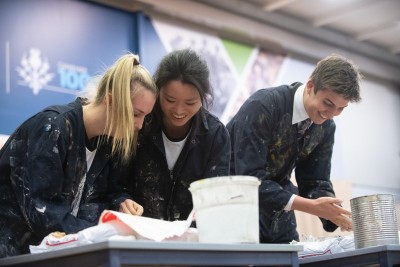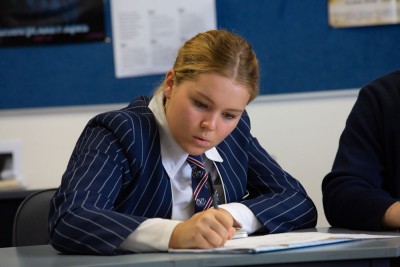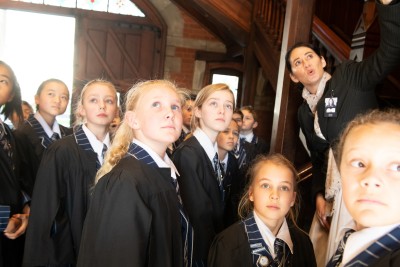
You are logged in as
Logout
You are logged in as
LogoutThis website uses cookies to distinguish you from other users. This helps us to provide you with a good user experience and also allows us to improve our website. More information


Creativity is a strength that describes the ability to turn original and imaginative ideas into reality. It involves two processes; thinking, then producing.
Our future will be faced by challenge and constant change. In this context we will need people who can think differently and provide innovative solutions to global problems. In a competitive world, creativity is what fuels innovative ideas, challenges ways of thinking, and opens doors to new opportunities. Creative people have the ability to devise new ways of doing things by solving problems and meeting challenges. Creativity is associated with lateral thinking and the ability to perceive patterns that are not obvious.
Students with creativity might:
Teachers with creativity might:
If you have ideas but don’t act on them, you are imaginative but not creative.
 Curiosity
CuriosityCuriosity is all about exploring and discovering.
Curiosity is about having an open and active mind. Curiosity puts the brain in a state that makes learning more enjoyable. When we are curious we are open to engaging in new experiences and meeting new people.
Students with curiosity might:
Teachers with curiosity might:
"I have no special talent. I am only passionately curious."
Albert Einstein
 Judgement / Critical Thinking
Judgement / Critical ThinkingThinking things through logically and examining them from all sides.
People who think critically can process information in a deliberate, systematic and logical way. With critical thinking, we analyse and evaluate facts in order to form a clear, rational and evidence based judgement. Critical thinking is an essential skill and is important for research, problem solving and decision making.
Critical thinkers challenge assumptions and biases in order to improve their understanding.
Students with critical thinking might:
Teachers with critical thinking might:
 Love of Learning
Love of LearningEnjoying the process of mastering new skills, topics, and bodies of knowledge.
When people enjoy learning, they learn for learning’s sake and are able to persevere even when the task proves difficult or they experience failure. With a love of learning, students are lifelong learners and continue to deepen and broaden their knowledge base.
Students with love of learning might:
Teachers with a love of learning might:
 Perspective
PerspectiveValuing diverse perspectives and seeing the bigger picture.
People who think with perspective have an open mind and appreciate viewpoints other than their own. This enables them to see the big picture and make important connections. With perspective, you’re good at looking at a situation from different angles, and people appreciate your insight and wisdom and will often seek your counsel.
Students with perspective might:
Teachers with perspective might:








